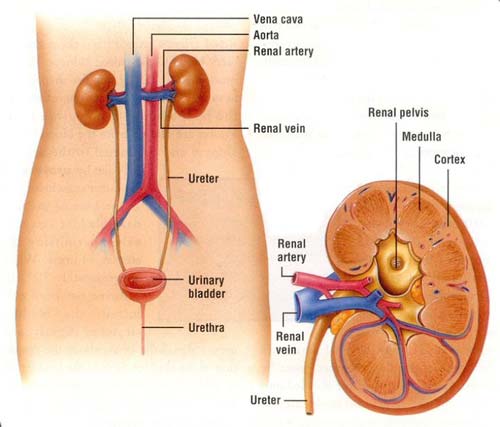excretory system

The excretory system, also known as the urinary system, is one of 11 major organ systems found in humans and other vertebrates; its main function is to maintain the volume and composition of body fluids within normal limits. One aspect of this function is to rid the body of waste products that accumulate as a result of cellular metabolism.
Although the urinary system has a major role in excretion, other organs contribute to the excretory function. The lungs in the respiratory system excrete some waste products, such as carbon dioxide and water. The skin is another excretory organ that rids the body of wastes through the sweat glands. The liver and intestines excrete bile pigments that result from the destruction of hemoglobin. The major task of excretion still belongs to the urinary system. If it fails the other organs cannot take over and compensate adequately.
The urinary system maintains an appropriate fluid volume by regulating the amount of water that is excreted in the urine. Other aspects of its function include regulating the concentrations of various electrolytes in the body fluids and maintaining normal pH of the blood.
In addition to maintaining fluid homeostasis in the body, the urinary system controls erythrocyte (red blood cell) production by secreting the hormone erythropoietin. The urinary system also plays a role in maintaining normal blood pressure by secreting the enzyme renin.


